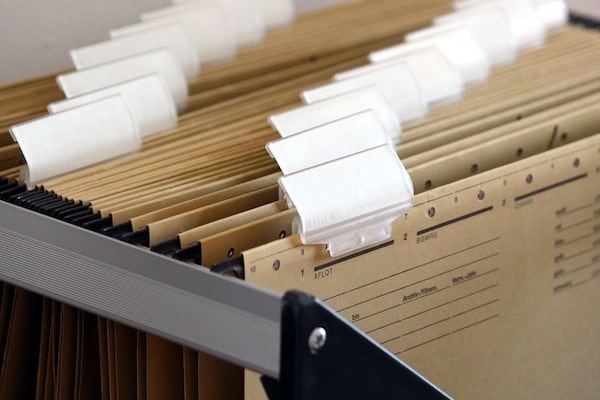
April has been selected as Records and Information Management (RIM) month. You might think this only applies to corporations or businesses. However, in our homes, we have documents that establish our identity (e.g. birth certificates) and show evidence of our financial transactions (e.g. income tax slips). We also have proof of our accomplishments (e.g. diplomas). Let’s talk about giving our filing cabinets – both physical and digital a good “spring cleaning.”
This year ARMA International suggests we take four actions to declutter and organize our household records.
Delete It
Toss these items if you find them in your filing cabinet:
- Clippings of craft projects you haven’t started that are more than one year old
- Expired coupons and gift certificates
- Greeting cards and expired invitations
- Outdated calendars and schedules
- Magazines that have been unread for more than two months
- Catalogues and brochures for stores where you do not shop
- Tourist and travel brochures more than six months old
- Roadmaps more than two years old
Confirm with your legal or financial advisor for retention guidelines for other documents such as financial, legal, or tax records. They will be better able to inform you of when to delete these files.
Organize It
Organize your computer files into a virtual filing cabinet that mirrors your paper filing cabinet. Set up a standard naming convention for your computer files. Do not rely on your email program as your filing cabinet. Save important emails and attachments to your computer as PDF files.
Identify and separate your vital records from your other documents. Vital records are documents that would be very difficult to replace if lost. They are essential to prove your identity, identify your assets, and conduct important financial transactions. Vital records include birth certificates, SIN cards, passports, wills, investment certificates, insurance policies, etc. If you were forced to evacuate in minutes, you would want to be able to quickly grab these items before leaving.
Secure It
Keep vital records in a safety deposit box or fireproof safe. Keep filing cabinets locked. Do not leave documents with confidential information lying around the house. When you dispose of documents with confidential information, be sure to shred them. Also, you should password-protect computers and mobile devices. Use strong passwords and a password manager to prevent hacking and identity theft.
Use It
Teach family members how to use the filing system. Keep your software updated and use the latest anti-virus/anti-hacking programs. Regularly review your files. Update file names, maintain your organizing system, and securely delete/shred what is no longer needed.
If you need help spring cleaning your filing cabinets or computer files, contact us to discuss how we can help.
Image by Ulrike Mai from Pixabay
